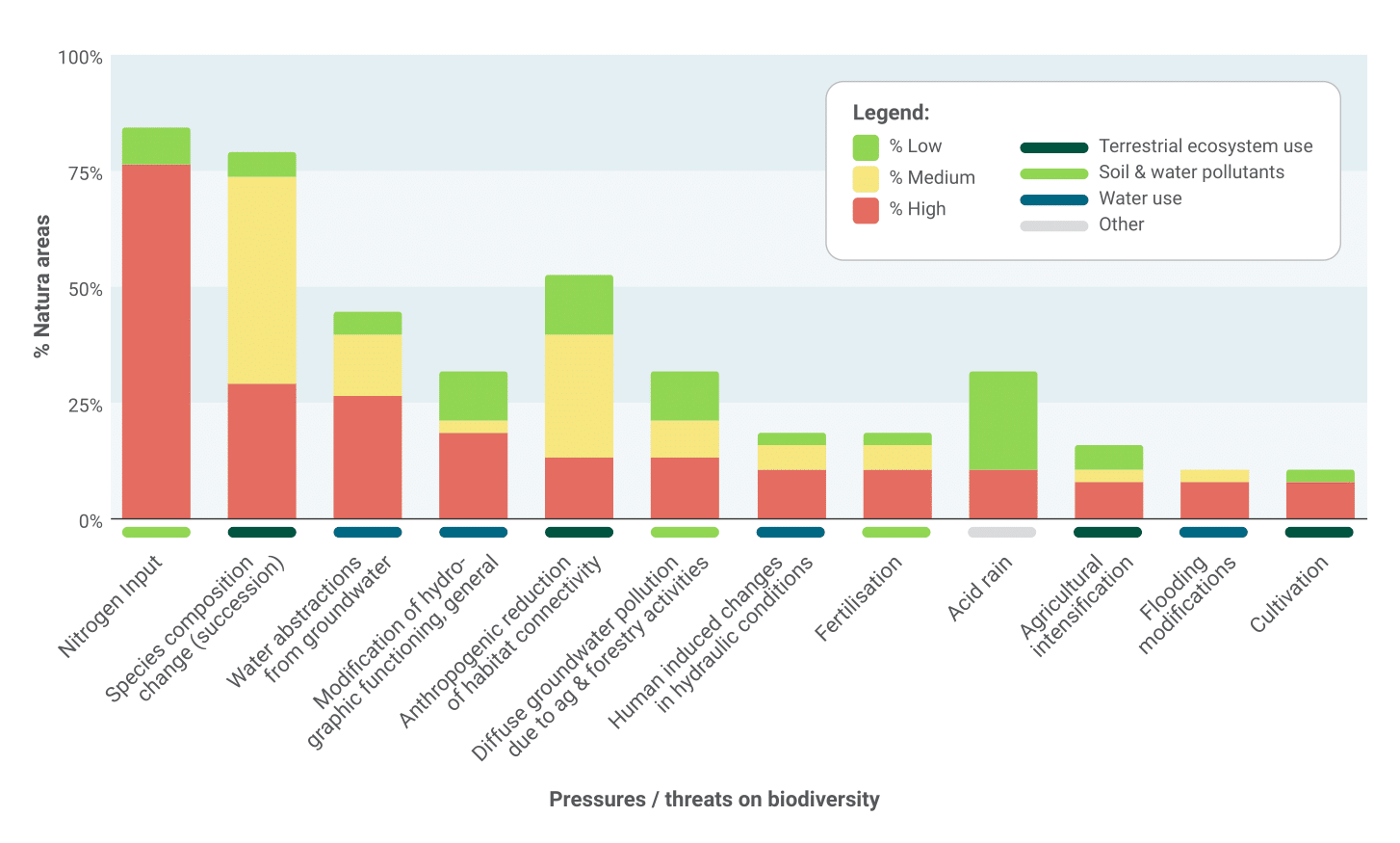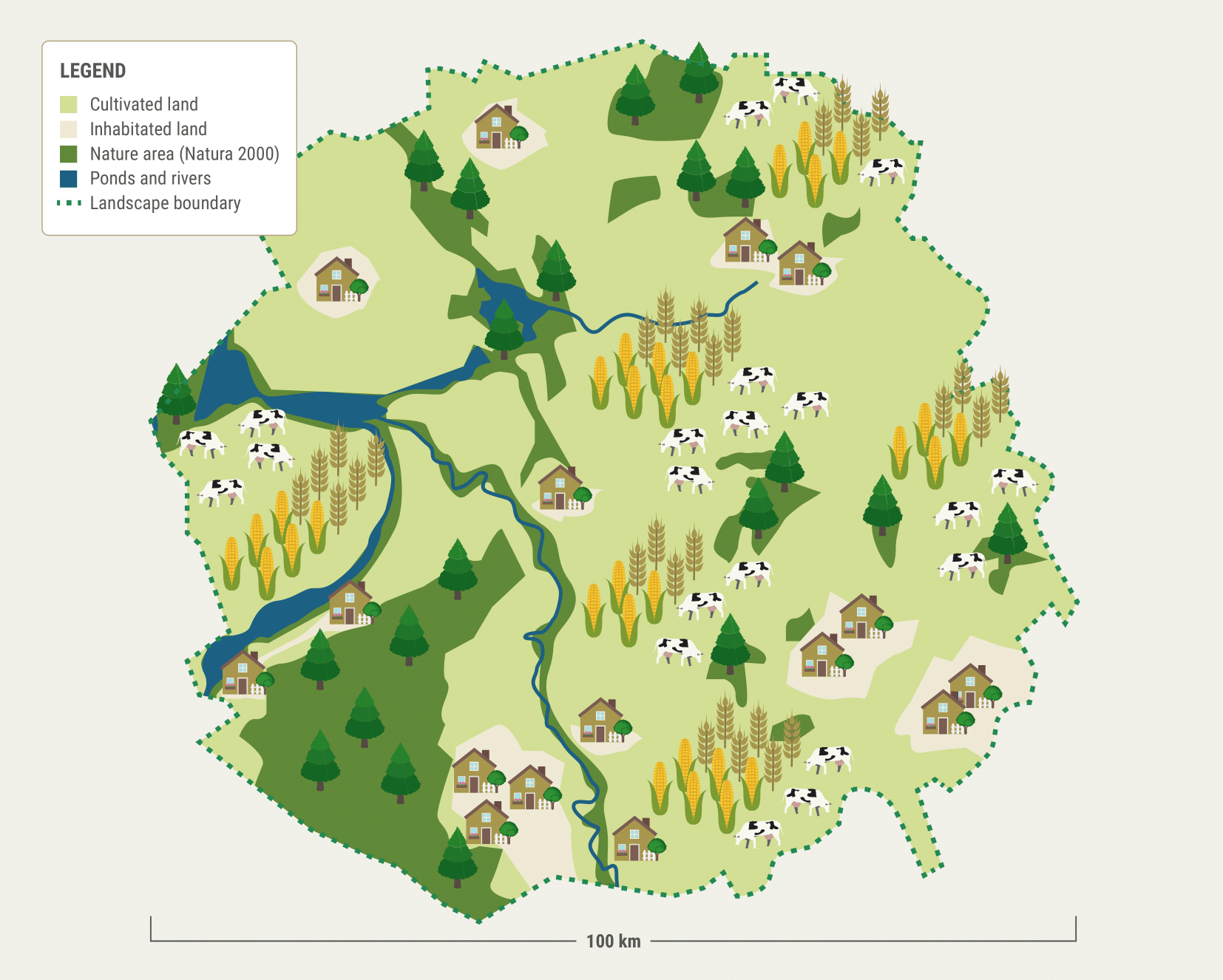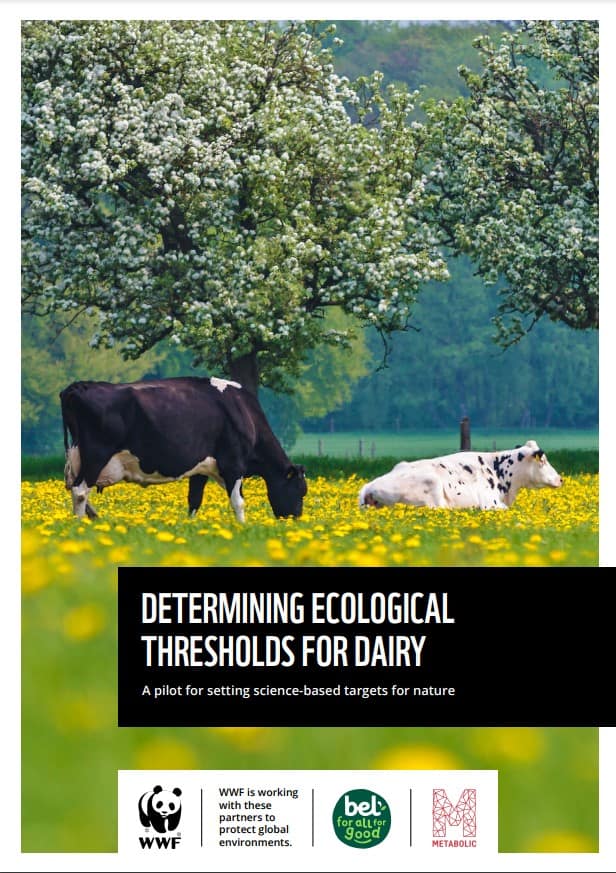Determining ecological thresholds for dairy farming
A pilot for setting science-based targets for nature
As an international agrifood company, Bel Group is committed to preserving biodiversity. Metabolic developed a new approach for setting science-based targets for nature, looking at a specific Dutch dairy farming region. Our proof of concept allows Bel to establish ecological thresholds, targets, and action plans on biodiversity loss and soil and water usage for the preservation of species and ecosystems, both in this specific dairy farming region and then throughout Europe.
- Partner: WWF-France
- Client: Bel Group
- Date: Completed in February 2022
Companies are looking for solutions to become nature-positive
Ecosystems and nature are in decline. Human pressure on nature threatens its ability to provide the ecosystem services that our society relies on to prosper. To counter this, we need examples of companies that are taking steps to become nature-positive in a scientifically rigorous way. Both the Dutch Dairy Biodiversity Monitor and The Science Based Targets Network (SBTN) were formed in response to nature’s decline. Bel Group, which committed to measuring its biodiversity footprint, tasked us with setting robust science-based targets that can be applied throughout its agricultural landscapes in Europe.
Setting targets and outlining the process for achieving them
First, we looked at the material impacts on nature relevant to the dairy industry. With WWF-France, we identified local ecological thresholds in dairy farms to determine what is really needed to enable ecosystem resilience and avoid collapse. We then identified societal goals for key performance indicators (KPIs). We performed a gap analysis using available farm census data and identified best practices that can help to reduce the gap and reach these goals. Finally, we proposed a full business case with recommendations for appropriate paths forward.
A scalable, integrated approach
Our report outlines the process for setting science-based targets for nature within a specific landscape. There were clear areas where the implementing regenerative agricultural practices can help to reduce the performance gap on the farms. We also created a database of activities that avoid/reduce pressures, restore and regenerate ecosystems, and act as transformative solutions. Our proposed business case outlines different possible interventions to move the landscape towards nature-positive outcomes.






“It is essential that companies start acting now. Despite the guidance not being fully developed, companies like Bel making an effort to develop SBTs is important for the final development. It is inspiring to see companies move beyond making vague commitments toward biodiversity/nature and rather to see practical target setting.”
Brian James Shaw, Agrifood & Biodiversity Lead at Metabolic
Director
ANY QUESTIONS?
For more information about this project, please get in touch.






